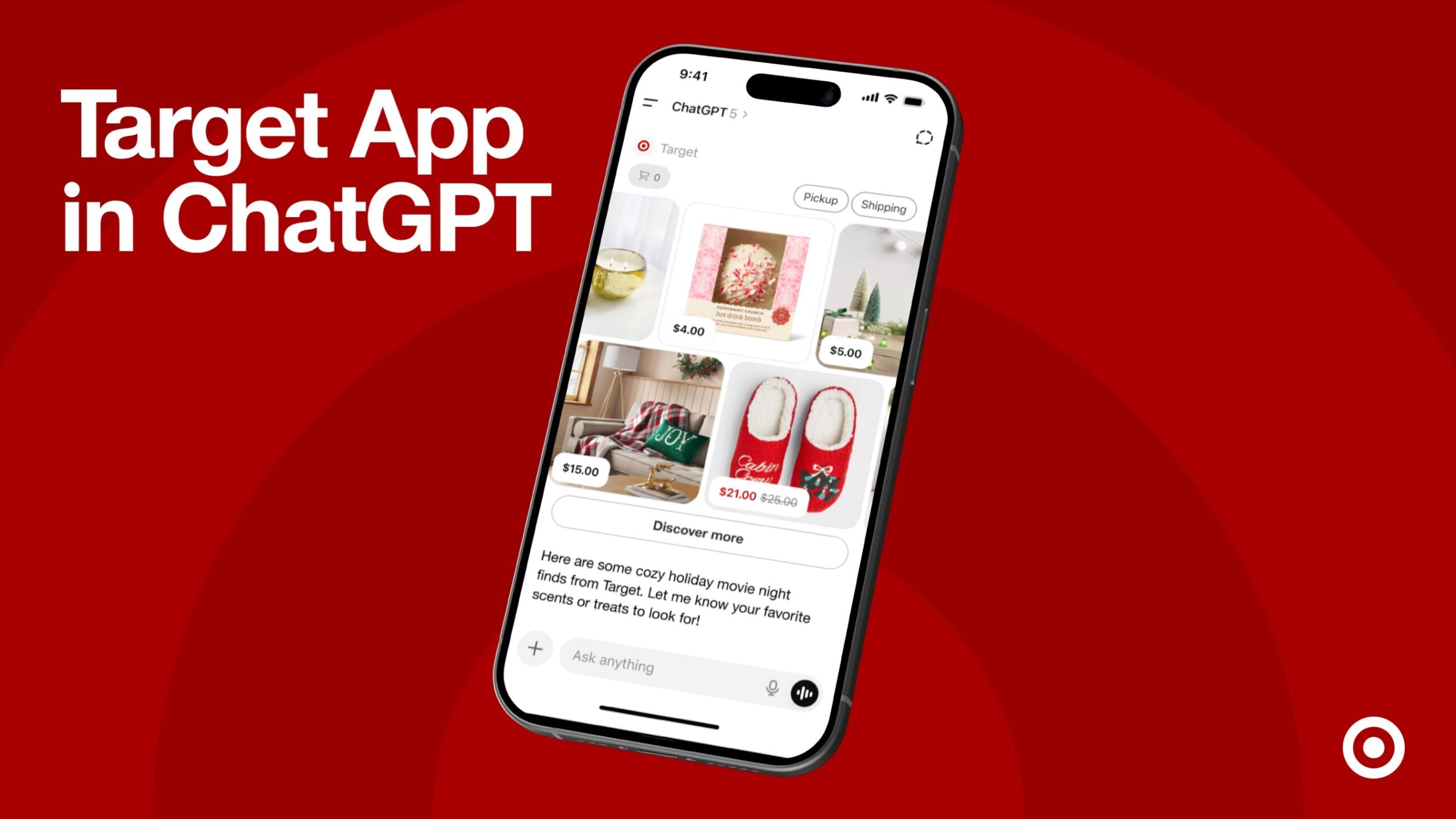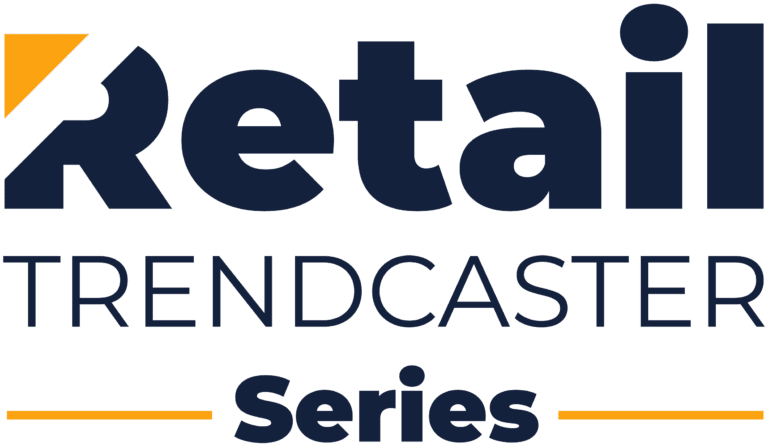Consumers will be able to discover and shop items from Target inside ChatGPT, just in time for the holiday season’s biggest weekend. Next week, Target will launch a beta test of shopping in its app through ChatGPT, including the ability to purchase multiple items in a single transaction, shop fresh food products and select drive-up, pick-up or shipping fulfillment options.
A bit late to the party, but perhaps the arrival matters more than the timing: Earlier this fall, a swath of major ecommerce players, including Walmart, announced similar moves to make their offerings available for purchase directly in OpenAI’s conversational platform.
Through the new Target app experience in ChatGPT, users can ask for help in getting exactly what they need. Here’s how it works:
- In the ChatGPT interface, a shopper will be able to tag Target and then ask for help, for example, to “plan for a holiday family movie night.”
- The Target app in ChatGPT responds with suggestions across Target’s assortment.
- The shopper can then browse options, build a basket with multiple items and seamlessly purchase with their choice of fulfillment, all without ever leaving ChatGPT.
Target promised in its announcement that this is “just the beginning” for its ChatGPT experience and said the integration will continue to evolve with new features, such as linking to Target Circle loyalty accounts and offering same-day delivery.
“At Target, everything starts with the guest, and that means meeting them wherever they are, including emerging spaces like ChatGPT, where millions of consumers visit,” said Prat Vemana, EVP and Chief Information and Product Officer at Target in a statement. “We’re proud to be one of the first retailers bringing shopping into this new channel, partnering with OpenAI to make discovery through the Target app in ChatGPT as easy and joyful as browsing our aisles. Our goal is simple: make every interaction feel as natural, helpful and inspiring as chatting with a friend.”
“A big part of the AI transformation is happening inside enterprises, and Target is a great example of what that shift looks like when it’s done with ambition and speed,” added Fidji Simo, CEO of Applications at OpenAI in the statement. “We’re excited to work with Target as they weave intelligence throughout their business to create useful and joyful experiences for their customers and their employees.”
Amazon Actively Blocking AI Agent Purchases
Target joins a growing roster of ecommerce brands working with ChatGPT to enable integrated commerce, including Walmart, Etsy, Shopify, Salesforce and PayPal.
“Shopping is changing fast. People are discovering products in AI conversations, not just through search or ads,” said Vanessa Lee, VP of Product at Shopify in a statement when that company announced its integration in September. “This will let our merchants show up naturally in those moments and give shoppers a way to buy without breaking their flow. It’s a really exciting shift for commerce.”
One notable holdout has been Amazon, which is not only not participating but appears to be actively blocking OpenAI from crawling Amazon.com. Earlier this month, Amazon also sent a cease-and-desist letter to conversational AI platform Perplexity for making unauthorized purchases on its website.
“We think it’s fairly straightforward that third-party applications that offer to make purchases on behalf of customers from other businesses should operate openly and respect service provider decisions whether or not to participate,” Amazon wrote in a blog post describing the reasoning behind its actions against Perplexity.
Target Looks to Technology for a Turnaround
Unlike Amazon — which has its own slate of agentic AI interfaces and tools it wants to promote — Target isn’t in a position to fight the growing commercial power of platforms like ChatGPT. The big box retailer has been fighting a marked decline in sales that continued in its Q3 (which ended Nov. 1, 2025), when net sales again declined by 1.5% year-over-year to $25.3 billion and comparable sales decreased 2.7%. The retailer said it expects declines in the low single digits in Q4.
One of the ways Target is now hoping to combat this downward trend is through technology. The retailer unveiled plans to invest an additional $1 billion in the business in 2026 to fuel growth, in addition to approximately $5 billion in planned capital expenditures that will support advancements in technology and digital fulfillment capabilities, as well as new stores and remodels and other enhancements to the store experience.
In its announcement about the ChatGPT integration, Target also highlighted that teams across Target are using ChatGPT Enterprise “to increase speed, simplify workflows and create more space for creativity,” and added that beyond ChatGPT, Target also is using AI to “enhance operations across the company, from improving supply chain forecasting to simplifying store processes and personalizing the digital experience.”
“Technology is helping define Target as a company that doesn’t just use AI, but runs on AI,” Vemana said. “It’s enabling faster response to trends, powering guest interactions with more ease and joy, and giving teams intelligent tools that reduce friction so they can focus on what matters most: serving our guests.”






